Certain plants need mineral oils to thrive and grow. Mineral oils have been used in gardens for a long time, and their use has only increased in recent years. Mineral oils have been used as pesticides for centuries and are some of the most effective, safe alternatives to synthetic insecticides and fungicides. Mineral oils are considered a promising control agent against a wide variety of pests all over the world.
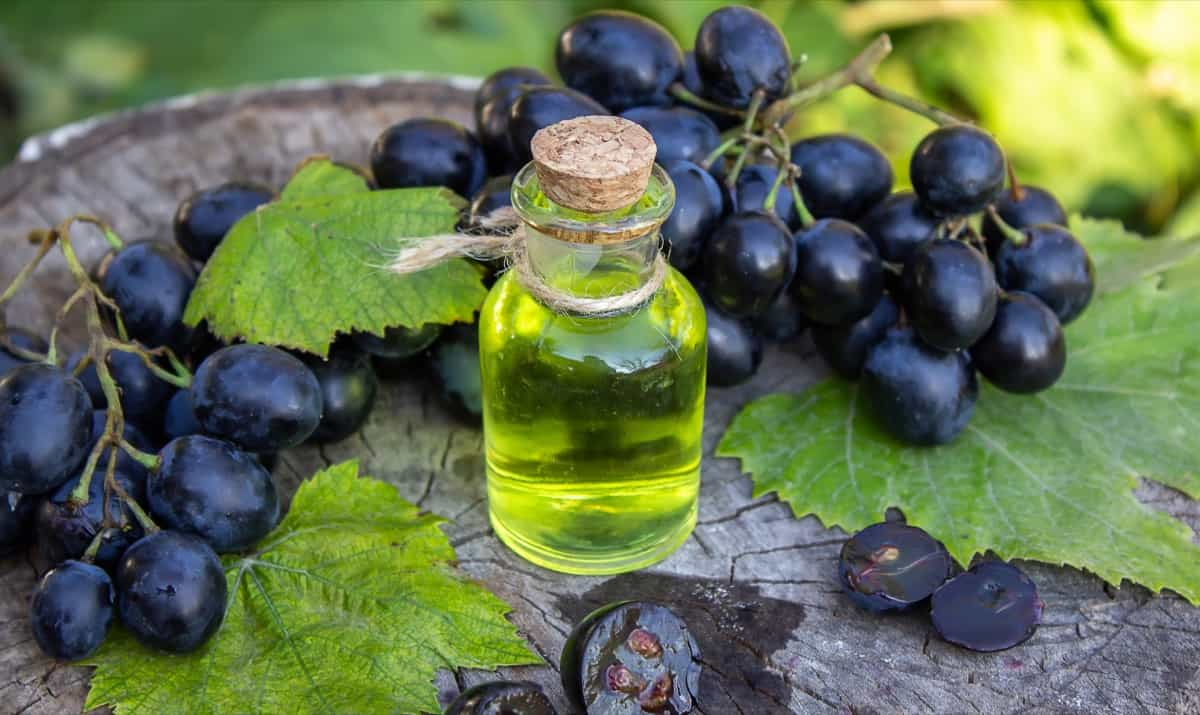
How to use mineral oils in garden
What are mineral oils?
Mineral oils are a type of petroleum-based oil. They are a mixture of various hydrocarbons, including but not limited to alkanes and alkenes. Benzene, toluene, xylene, and cumene are the most common mineral oils. Mineral oils differ from other petroleum-based oils because they have a higher melting point.
Mineral oils, such as bug repellents and fertilizers, are common in garden products. They are also used to moisturize plants. Mineral oil can be applied directly to the plant’s leaves or bark. To use mineral oil on plants, ensure it is safe for your plants. Wash your hands and equipment before using mineral oil on plants.
Why use mineral oils in gardens?
Mineral oils can be used in gardens for a variety of reasons. Mineral oils are highly effective at repelling pests and provide long-lasting moisture control. The oil can be absorbed by the plant through its leaves and transported up to the plant’s canopy, where it can be released to help protect the plant from extreme weather conditions.
Additionally, mineral oils offer a strong scent that can deter pests and attract beneficial insects. The popularity of mineral oils in gardens stems from their versatility. They can be used as a systemic insecticide, meaning plants absorb them throughout the vascular system. This makes it effective at controlling pests throughout the garden rather than just on the surface where applications are made.
Mineral oils can also be used as a foliar spray when applied to foliage. This means that they will be absorbed by the leaves and transferred down to the plant’s roots, where they will work to control pests and diseases. In addition, mineral oils can be used as natural fungicide, insecticides, and herbicides. Use mineral oil selectively to avoid harming beneficial insects or plants; follow the product’s instructions carefully for best results.
In case you missed it: How to Build a Shade Net House: DIY in Simple Steps from Scratch for Your Garden
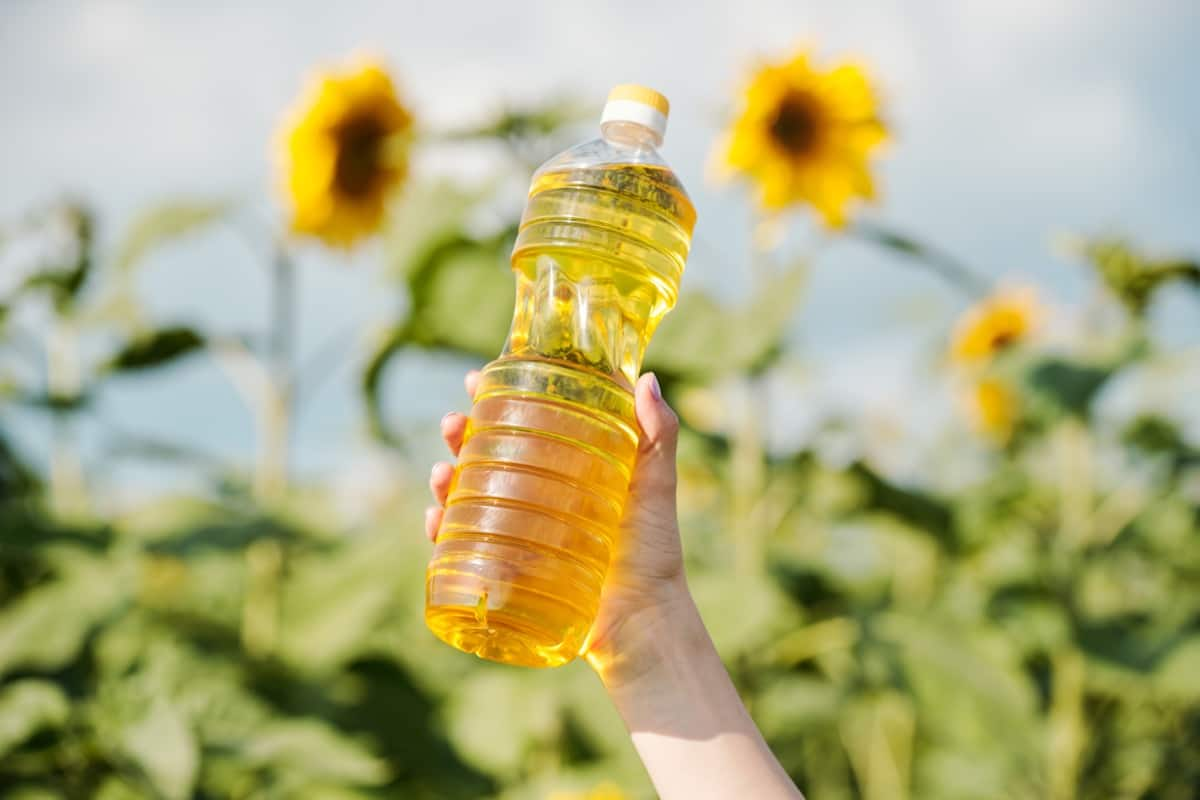
Benefits of mineral oils in the garden
- Several benefits come with using mineral oil in the garden, including better plant growth, improved soil quality, and reduced water requirements.
- Mineral oil can be used as an insecticide and a fungicide.
- It is a preservative in garden products, fertilizers, and pesticide concentrates.
- It can also be used to control weeds in gardens.
- Mineral oil can help to keep plants healthy by providing them with essential fatty acids.
- It is also effective at repelling pests and diseases from gardens.
- Mineral oil has a high smoke point, so it is suitable for smoking herbicides or adding it to hot compost heaps to release the heat and break down the chemicals more quickly.
- Mineral oil can be used as a moisturizer for garden plants, helping to reduce water loss and maintain plant health in dry climates.
- It can help increase the growth of plants by improving water retention and nutrient uptake. This can result in taller plants with healthier foliage.
- It can help plants withstand prolonged dry conditions by providing them with increased protection from moisture loss. Additionally, mineral oils can improve air circulation, reducing root rot and other diseases.
- It can improve the health of the soil by promoting deep root growth and preventing weed growth.
Tips for using mineral oils in the garden
- Mineral oils can be used topically on the leaves and stems of plants to provide a protective coating, increase water absorption, improve plant growth, and deter pests and diseases.
- Choose the type of mineral oil best suited for your garden or plant.
- Dilute the oil according to the recipe provided by the manufacturer.
- Apply the oil to areas where you want it to work its magic.
- Leave the treated area for a few minutes before rinsing it with water. Repeat application as needed.
- It is a powerful oil and should only be used sparingly on plants.
- Make sure you use the right mineral oil for your plants.
- Ensure you are applying the oil properly – too much can be harmful, and too little will not provide any benefits.
- Always watch your plants to ensure they get the most out of their mineral oil treatments.
- Apply mineral oil generously to all areas of the plant where pests or fungal problems are suspected. Be especially thorough around the base of plants and leaf axils.
- Wait until the product has been absorbed into the soil before watering or fertilizing plants. This will help prevent runoff from damaging delicate surroundings.
- Remove any dead plants or leaves after treatment; doing so will help reduce pest populations in future seasons.
Mineral oil for scale insects
To treat scale insects, make a solution of 1 part mineral oil to 10 parts water. Pour the solution onto the infested area and spread it around with a cloth or sponge. Let the treatment sit for several hours before rinsing off. Then, repeat the process as needed.
In case you missed it: How to Use Bone Meal Fertilizer in the Garden: Benefits, When and How to Apply
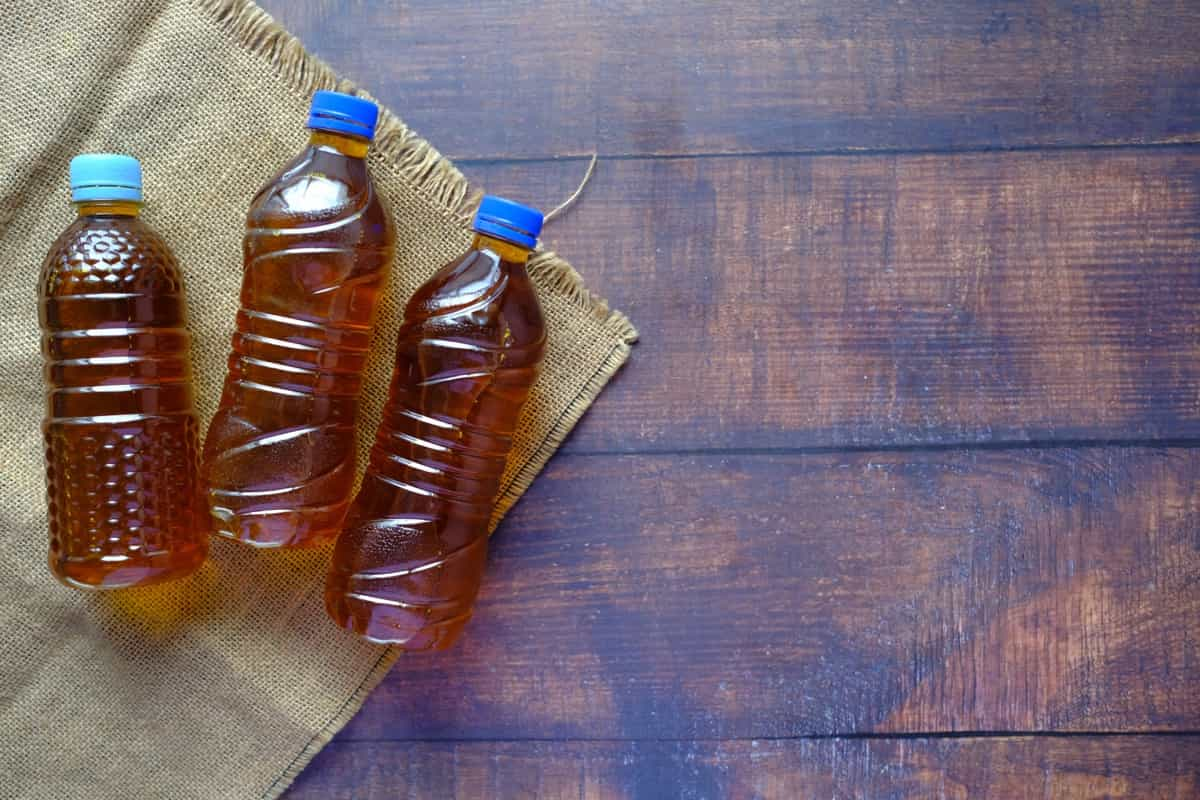
What kinds of mineral oils are available?
Many different types of mineral oils are available on the market. Many mineral oils can be used in indoor and outdoor gardens, as they’re nontoxic and resistant to oxidative damage. Some popular types of mineral oil include;
- Linseed oil is a versatile oil that’s great for indoor and outdoor gardens. Its low viscosity makes it easy to apply, and its high zinc content makes it an effective deterrent against insect pests.
- Sunflower oil is another popular oil for use in gardens. It has a high vitamin E content, making it an excellent choice for protecting plants from environmental stressors like pollution and UV rays.
- Grape seed oil is well-known for its anti-inflammatory properties, which make it particularly useful for treating conditions.
Is mineral oil good for the garden?
When it comes to garden care, one of the most common items people use is mineral oil. Mineral oil is good for the garden in a few different ways. One way it is beneficial to the garden is that it helps protect plants from pests and diseases. Additionally, mineral oil can help keep foliage healthy by preventing browning and promoting plant growth. Another benefit of using mineral oil in the garden is that it can be used as a pesticide.
Mineral oils are toxic to many pests, so they can effectively control them without any harmful side effects. Additionally, mineral oil can act as an insect repellent, so it can help keep pesky bugs away from your plants. Overall, mineral oil is a versatile tool that can be helpful when caring for plants in the garden. It has many benefits for the plants and the gardener, so it should be used whenever possible.
Is neem oil and mineral oil the same?
Neem oil is mostly derived from neem tree seeds, while mineral oil is a liquid petroleum product. While they may have similar appearances, neem oil is composed of various plant-based chemicals, including monoterpenes and sesquiterpenes, while mineral oil is composed primarily of hydrocarbons.
The main difference between neem and mineral oils comes down to their composition. Neem oil is made up of various plant-based chemicals that work together to fight pests and diseases in the garden. On the other hand, mineral oil is made up primarily of hydrocarbons, which are not as effective at fighting pests or diseases.
The usage of mineral oils to control insects
There are many ways to use mineral oils to control insects in the garden. For example, you can use them as a repellent, a spot treatment, or a deterrent. One of the most common uses for mineral oils is as a repellent. To use this method, mix 1 part oil with nine parts water and spray the mixture on your plants to repel insects. You can also use mineral oils as spot treatments to remove pests from specific areas of your garden.
In case you missed it: Mustard Cake Fertilizer Uses in the Garden: Step-By-Step Process, Plant Benefits, and Application Method
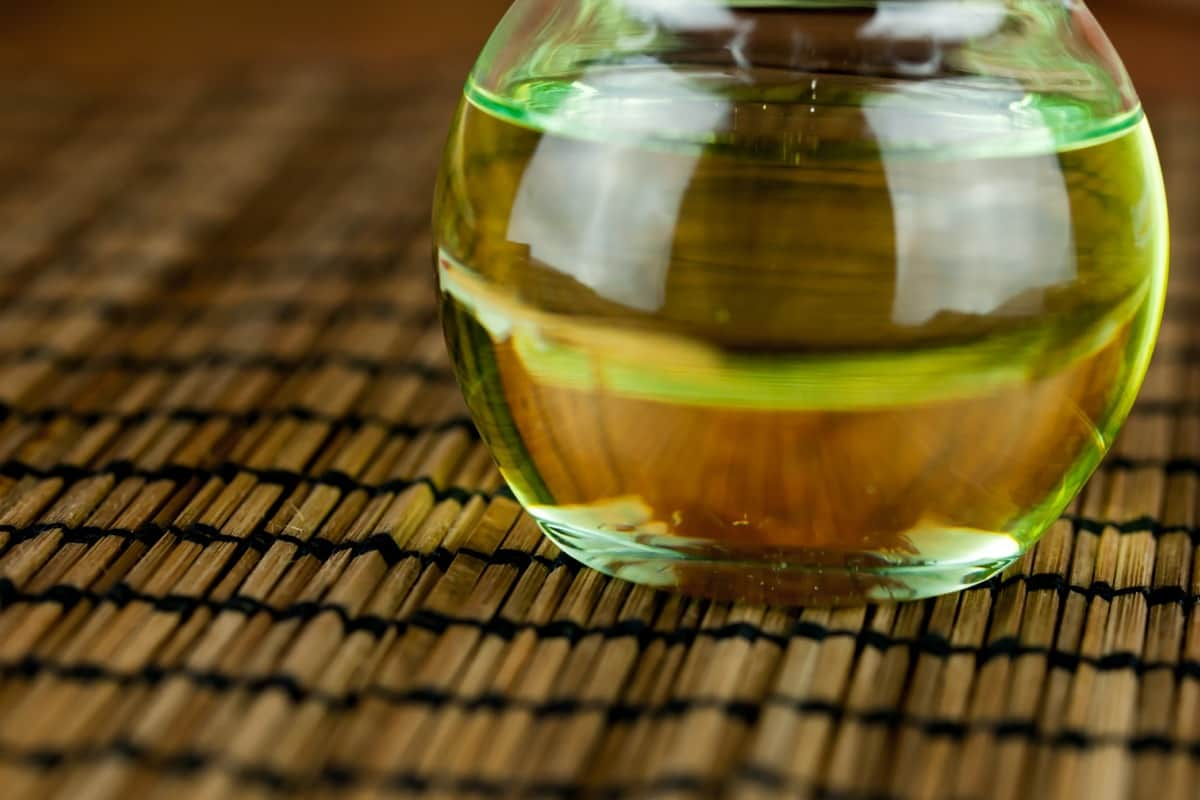
To do this, apply the oil directly to the insect infestation and wait until it dries before continuing care. Be sure to cover any openings where you applied the oil so insects cannot get inside. Finally, you can use mineral oils as a deterrent against pests in your garden by adding them to your gardening soil mix or using them as an insecticide monitor spray. This treatment will keep pests away from your plants while working but will not harm them if they come into contact with it accidentally.
Common uses for mineral oil in the garden include;
- Helping plants retain water and stay hydrated
- Protecting against pests and diseases
- Encouraging the growth of flowers and vegetables
- Keeping leaves green
When to apply mineral oil to garden plants?
Mineral oil can be used anytime during the growing season. However, mineral oil should not be applied when the plant is wet because it will stay on the leaves and soak into the soil. It should also be avoided when temperatures are high because this will cause heat damage to the plant. Mineral oil can also be harmful if ingested, so it should only be applied directly to plants or foliage if necessary.
What plants benefit from mineral oils?
- Some plants that benefit from mineral oil include roses, beans, tomatoes, eggplant, and cucumbers. When using mineral oil as a pesticide or repellent, please read the label carefully and mix it with other pesticides or repellents as directed on the product.
- Adding mineral oil to the soil can improve its texture and fertility by attracting and retaining moisture, providing food for plant roots, and creating a protective barrier against pests and diseases. However, test the mixture before applying it to your plants to avoid causing any harm.
Precautions to apply mineral oils in garden plants
- Mineral oil should not be applied directly to foliage or flowers. Instead, it should be mixed with another substance to help spread the oil around the plant.
- Mineral oil can also damage tender plants if left on the surface of the soil for an extended period.
In case you missed it: Ways to Use Neem Oil in Plants: Benefits in Agriculture, Application Method in Garden, and Uses in Hydroponics

Steps to use mineral oils to garden plants
- One way is to dilute mineral oil with water and apply it as a foliar spray to plants. This will help to improve the plant’s nutrient uptake and protect them from pests.
- Another way is to add mineral oil to the soil as a fertilizer. Mineral oil can be used in place of synthetic fertilizers, but it should only be applied in small amounts (1-2 tablespoons per 25 gallons of soil) as it can damage plants.
- Finally, mineral oil can be used as a preservative on fruits, vegetables, and flowers.
How to use mineral oils in your garden?
- Mineral oils provide many plant benefits, including water conservation, improved fruit and vegetable production, and less soil erosion.
- Select the right oil for your plant. Mineral oil is available in various concentrations, so it is important to select the right one for your needs.
- Apply mineral oil liberally to the plant’s surface. Use a sprayer or hand applicator to apply the oil directly to the plant’s foliage or stem. Do not irrigate immediately after applying mineral oil, and allow mineral oil to soak into the soil before watering.
- Monitor the effects of mineral oil usage over time. As with any herbicide or pesticide application, monitor your plants for adverse effects (e.g., damage to leaves) after applying mineral oil. Depending on the concentration of mineral oil used, there may be minimal injury at lower doses but more serious damage at higher doses.
In case you missed it: 10 Organic Fertilizers for Your Vegetable Garden: When and How to Apply
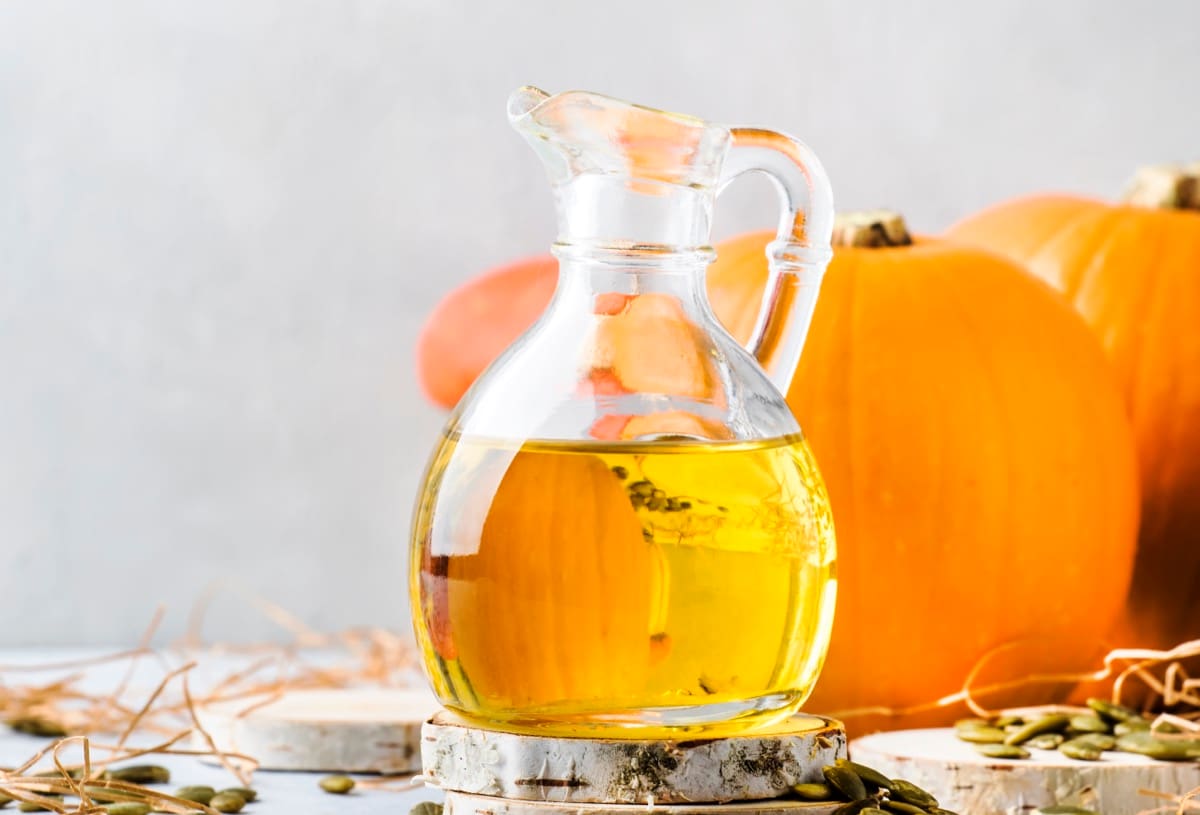
Conclusion
Mineral oils add stability and protection to plants while helping them to resist pests and diseases. However, care must be taken when using mineral oils, particularly if you have plants that are sensitive to oil fumes or young plants that need special care. Always read the label of any product before using it in your garden.
- Goat Farming Technology: The Future of Goat Husbandry
- How to Build a Low-budget Goat Shed: Cheap Ideas and Tips
- Goat Farming Training Programs in India: A Beginner’s Guide
- Types of Pesticides Used in Agriculture: A Beginner’s Guide
- Economical Aquaculture: A Guide to Low-Budget Fish Farming
- 15 Common Planting Errors That Can Doom Your Fruit Trees
- How to Make Houseplants Bushy: Effective Tips and Ideas
- Innovative Strategies for Boosting Coconut Pollination and Yield
- Pollination Strategies for Maximum Pumpkin Yield
- The Complete Guide to Chicken Fattening: Strategies for Maximum Growth
- Natural Solutions for Tulip Problems: 100% Effective Remedies for Leaf and Bulb-Related Issues
- Revolutionizing Citrus Preservation: Towards a Healthier, Greener Future
- Natural Solutions for Peony Leaf and Flower Problems: 100% Effective Remedies
- Maximizing Profits with Avocado Contract Farming in India: A Comprehensive Guide
- Natural Solutions for Hydrangea Problems: 100% Effective Remedies for Leaf and Flowers
- The Ultimate Guide to Choosing the Perfect Foliage Friend: Bringing Life Indoors
- From Sunlight to Sustainability: 15 Ways to Use Solar Technology in Agriculture
- The Ultimate Guide to Dong Tao Chicken: Exploring from History to Raising
- The Eco-Friendly Makeover: How to Convert Your Unused Swimming Pool into a Fish Pond
- Mastering the Art of Delaware Chicken Farming: Essentials for Healthy Backyard Flocks
- 20 Best Homemade Fertilizers for Money Plant: DIY Recipes and Application Methods
- How to Craft a Comprehensive Free-Range Chicken Farming Business Plan
- Brighten Your Flock: Raising Easter Egger Chickens for Beauty and Bounty
- How to Optimize Your Poultry Egg Farm Business Plan with These Strategies
- Subsidy for Spirulina Cultivation: How Indian Government Schemes Encouraging Spirulina Farmers
- Ultimate Guide to Raising Dominique Chickens: Breeding, Feeding, Egg-Production, and Care
- Mastering the Art of Raising Jersey Giant Chickens: Care, Feeding, and More
- Ultimate Guide to Raising Legbar Chickens: Breeding, Farming Practices, Diet, Egg-Production
- How to Raise Welsummer Chickens: A Comprehensive Guide for Beginners
- How to Protect Indoor Plants in Winter: A Comprehensive Guide
- Ultimate Guide to Grow Bag Gardening: Tips, Tricks, and Planting Ideas for Urban Gardeners
- Guide to Lotus Cultivation: How to Propagate, Plant, Grow, Care, Cost, and Profit
- Agriculture Drone Subsidy Scheme: Government Kisan Subsidy, License, and How to Apply Online
- Ultimate Guide to Raising Araucana Chickens: Breed Profile, Farming Economics, Diet, and Care
- Bringing Hydroponics to Classroom: Importance, Benefits of Learning for School Students
- Ultimate Guide to Raising Polish Chickens: Breed Profile, Farming Economics, Diet, and Care